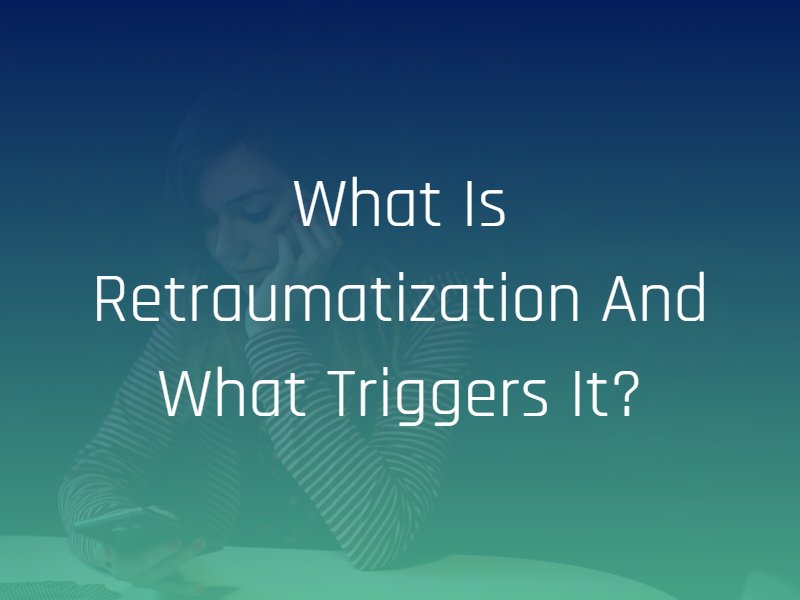Retraumatization occurs when a person who has experienced a traumatic event, such as sexual assault, recalls the event in vivid detail and in turn relives his or her experience. The survivor may also experience retraumatization when he or she engages in behaviors that mimic the original trauma or in situations similar to the conditions the trauma occurred in. If you are a sexual assault survivor, it is important to remain aware of trauma symptoms and take steps to treat them.
Retraumatization Triggers and Symptoms
Retraumatization can happen to anyone who has experienced a traumatic event, including sexual assault survivors. These symptoms can reappear at any time during the healing process if a survivor encounters a triggering situation, which may include the following.
- Sensory triggers, such as smell, lighting, location
- A new relationship similar to a traumatic one
- An anniversary of the traumatic event
- Traumatic stories in the news or entertainment media
- Situations involving physical restraints or isolation
- Medical appointments where a provider asks the survivor to retell his or her trauma
- Interviews with reporters or journalists
- Conversations with loved ones
- Forensic medical evaluations
- Court testimonies
- Discussions that do not respect emotional boundaries
The onset of retraumatization symptoms can be sudden and frightening, and survivors may experience different symptoms. Some of the most common symptoms of retraumatization include the following.
- Flashbacks and nightmares
- Intense negative emotions and thoughts
- Difficulty or inability controlling emotions
- Intense physical reactions when confronted with a trigger
- Feelings of anxiety or fear
- Difficulty concentrating or sleeping
- Isolating oneself or avoiding others
Is Retraumatization Harmful?
Retraumatization is harmful for survivors due to how it affects the brain. Flashbacks are a symptom of post-traumatic stress disorder (PTSD), which is common among sexual assault survivors. According to the Department of Veteran’s Affairs, one large-scale study of trauma survivors found that 45% of female rape survivors met the criteria for PTSD.
Certain parts of the brain are already too active in trauma survivors. Remembering trauma or confronting a trigger activates the parts of the brain and nervous system that respond to trauma. Retraumatization over activates these parts of the brain and impedes the healing process, worsening the trauma in the process.
How to Avoid Retraumatization
It is important for people who work with survivors to be mindful of retraumatization and to respect emotional boundaries surrounding the trauma. Extensive interviews or questioning, ignorance of triggers, or a lack of consent in conversations can cause further harm and prolong the healing process. Instead, professionals should keep an open mind when speaking to survivors, provide a comfortable and welcoming space, and provide resources for the survivor to seek help.
Mental health support can help you treat your condition and develop valuable skills to manage triggers. If you are a sexual assault survivor struggling with retraumatization, it is important to find professionals who support you and your needs. Your mental health support network should be kind, accommodating, and understanding of your condition. If you find yourself experiencing symptoms of trauma during your sessions, seek another provider as soon as possible.
Court proceedings can also retraumatize a survivor. Although a prosecutor will oversee your side of the case in a criminal trial, you may also seek legal counsel from a sexual assault attorney with experience advocating for survivors. Your sexual assault attorney can connect you with local resources, provide guidance, and explain your available legal options.

